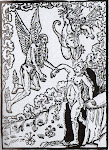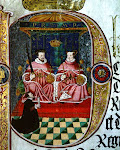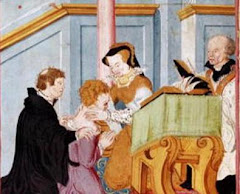1. In 1557 Mary declared war on Henri II of France. She sent a herald to the French court to announce the impending conflict. Instead of receiving him, Henri went hunting for two days. When he arrived back and the herald was finally granted an audience, he was cut off by the king on the grounds that he could not possibly hear war being declared on him by a woman. That was too unthinkable.
2. On the occasion of their marriage in 1554, Philip gave Mary a huge diamond (some girls have all the luck!) that his father, Charles V, had given his mother, Isabella of Portugal when they married in 1526. Thankfully no one at the time mentioned that in order to marry Isabella, Charles had repudiated his betrothed – Mary. Luckily such matters were long forgotten and forgiven by the time Mary married Charles’s son.
3. Mary loved gambling. Fortunately she was of a sufficient position to bet huge sums. Unfortunately she was not always blessed with a winning streak. In 1540, during one engrossing game of bowls (a pastime which Mary liked and placed sums on) she resorted to asking servants for money. They refused so Mary waged next day’s breakfast. Her servants were right to be cautious. As Mary’s account book attests -‘Payed for a Brekefaste loste at Bolling by my lady maryes grace’.
4. In November 1553, Mary requested a portrait of her future husband. Philip’s aunt and Mary’s cousin, Queen Mary of Hungary, had a stunning portrait of her nephew by Titian and said she would be prepared to loan it to Mary until Philip arrived in England. It seems Mary was rather attached to this portrait; by late 1554 Mary of Hungary was still asking for it back.

Philip (1527–1598), by Titian, c.1551
5. The only text by a woman printed in England during Mary’s reign was Mary Basset’s translation of Thomas More’s, History of the Passion. Basset, who dedicated her translation of Eusebius's Ecclesiastical History to Mary and was one of her ladies-in-waiting, was More’s granddaughter and the daughter of the equally talented scholar, Margaret Roper.
6. A large ruby, sent by Louis VII of France in 1179 to decorate the tomb of Thomas Becket, was ‘appropriated’ by Henry VIII upon the shrine’s destruction. As queen, Mary had the jewel set in a collar and wore it upon occasion.
7. Mary was a fan of that English classic, strawberries and cream. She enjoyed strawberries in general and received batches of them as gifts.

Mary's dish of choice.
8. For Philip’s royal entry into London in 1554, a series of pageants were held. One involved an acrobat, from Spain, performing tricks on the roof of St Paul’s Cathedral. Mary had been similarly entertained at her coronation pageant over a year earlier when a Dutch acrobat balanced on the weathercock of the Cathedral. Perhaps the Spanish acrobat performed the same trick. Unfortunately something went wrong, and the tumbler ended up dead from his act.
9. Since she was a young girl, Mary practised the custom of drawing Valentines, whereby a ‘Valentine’ is selected and a mock romance is played out. When she was nine-years-old, Mary’s chosen Valentine was her treasurer of the Privy Chamber, Richard Sydnor and she referred to herself in messages addressed to him as ‘your wyfe’ and him as her ‘husband adoptif’. However Sydnor was a rather sickly man, who found it hard to keep up this ‘romance’. The young Mary playfully scolded him; “ye take great care of your goute...than ye do of your wyfe”, she complained.
10. Mary’s ability in Latin from a young age was regarded as very advanced. When Henry Parker, tenth Baron Morley (father to Jane Boleyn), dedicated his translation of Aquinas on the angelic salvation to her, he remarked that when he came across examples of Mary’s Latin he was astonished by her skill; "I do well remember that scant ye were come to twelve years of age but that ye were so ripe in the Latin tongue, that rare doth happen to the woman sex, that your grace not only could perfectly read, write and construe Latin, but furthermore translate any hard thing of the Latin into our English tongue".

Henry Parker, tenth Baron Morley (1480/81–1556), by Albrecht Dürer, 1523



